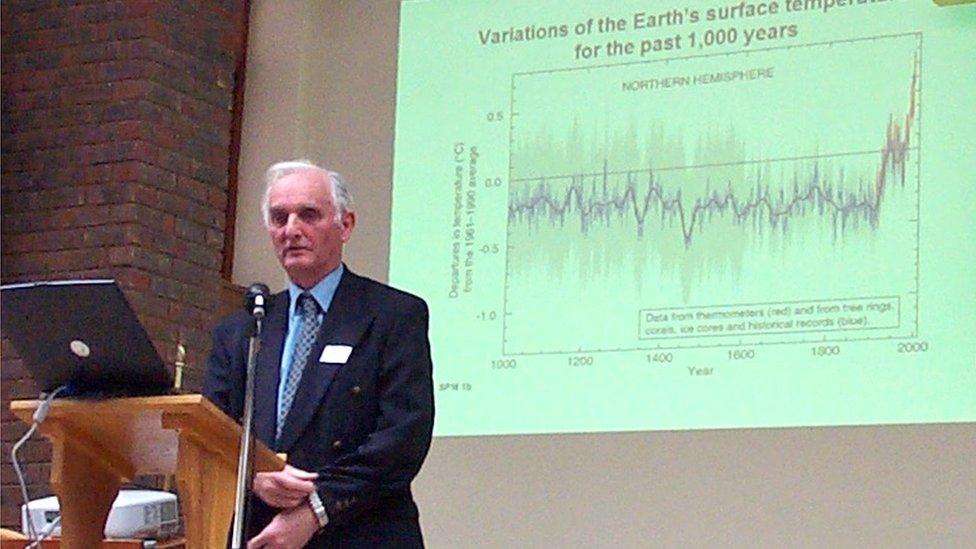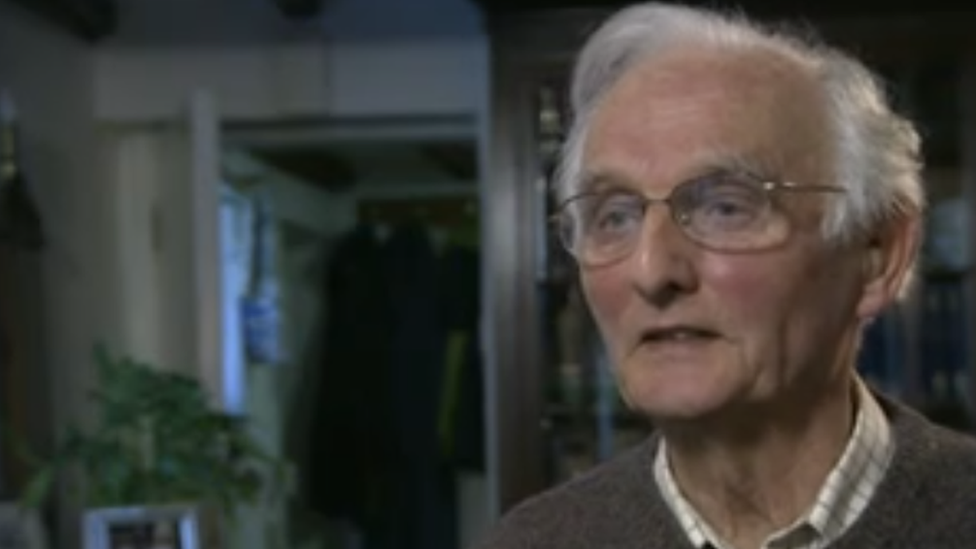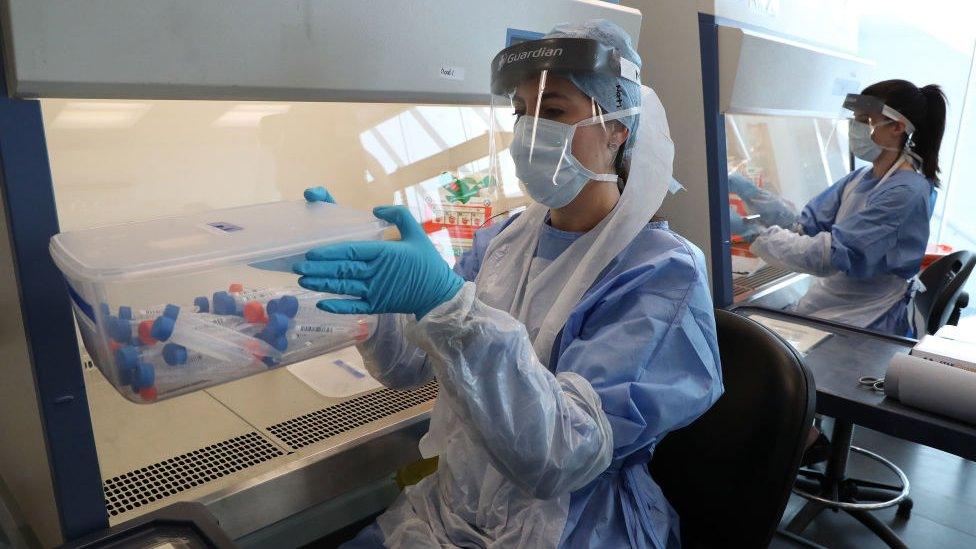Coronavirus: Sir John Houghton dies of suspected Covid-19
- Published

Sir John Houghton pictured speaking at a climate change conference in High Wycombe in 2005
A physicist from north Wales who was recognised for his work on climate change has died with suspected coronavirus, his granddaughter said.
Sir John Houghton, from Denbighshire, died on Wednesday aged 88.
He accepted the 2007 Nobel Peace Prize, external on behalf of the Intergovernmental Panel on Climate Change (IPCC), which shared the honour with Al Gore.
Sir John spent his final years living by the sea in Wales, his granddaughter Hannah Malcolm said on Twitter.
She said it was her grandfather's "favourite place".
"He slowly lost a lot of memories and faculties to dementia, but the sea remained with him. A good life," she said.

Allow X content?
This article contains content provided by X. We ask for your permission before anything is loaded, as they may be using cookies and other technologies. You may want to read X’s cookie policy, external and privacy policy, external before accepting. To view this content choose ‘accept and continue’.

The Denbighshire-born climate change scientist, who described global warming as "a weapon of mass destruction", was co-chair of the IPCC when it shared the Nobel Peace Prize.
Sir John went to Rhyl Grammar School, where his dad taught.
He was so capable at physics he got the highest marks in Wales and won a scholarship for Oxford University aged just 16 years old, where he studied maths and physics.
In 1958 he became an Oxford professor, later becoming chair of the World Climate Research Programme.

Analysis by Roger Harrabin, BBC Environment Analyst
John Houghton was a towering figure in the world of climate science. He persuaded many politicians about the gravity of the risk we're taking with his calm, modest, authoritative manner.
As a Christian, in later years he took on the prickly challenge of persuading US evangelist preachers that humans really could influence the climate on earth.
He introduced me to the climate threat back in the late 1980s, and latterly I visited him in his Welsh home - heavily insulated, warmed by heat pump, with stupendous views over the ever-shifting Dovey estuary. A good man.
If you would like to pay tribute to Sir John, please tweet Roger Harrabin at: @rharrabin


Ms Malcolm wrote: "When I was younger, my consistent memory of him was warnings over the devastation waiting us if we didn't act on climate change.
"And I remember thinking how glad I was that scientists like him were in charge. But of course it isn't the scientists in charge.
"He faced a lifetime of lobbyists and corporations trying to undermine his work, question his motives, and distract from evidence.
"But my other consistent memory will be his deep faith that he was doing work in service of the God he loved, and in service of the world he loved."
As the director general of the UK Met Office, he and weatherman Michael Fish were blamed for the failure to predict the big storm that hit the south of England in 1987.
- Published26 November 2020
